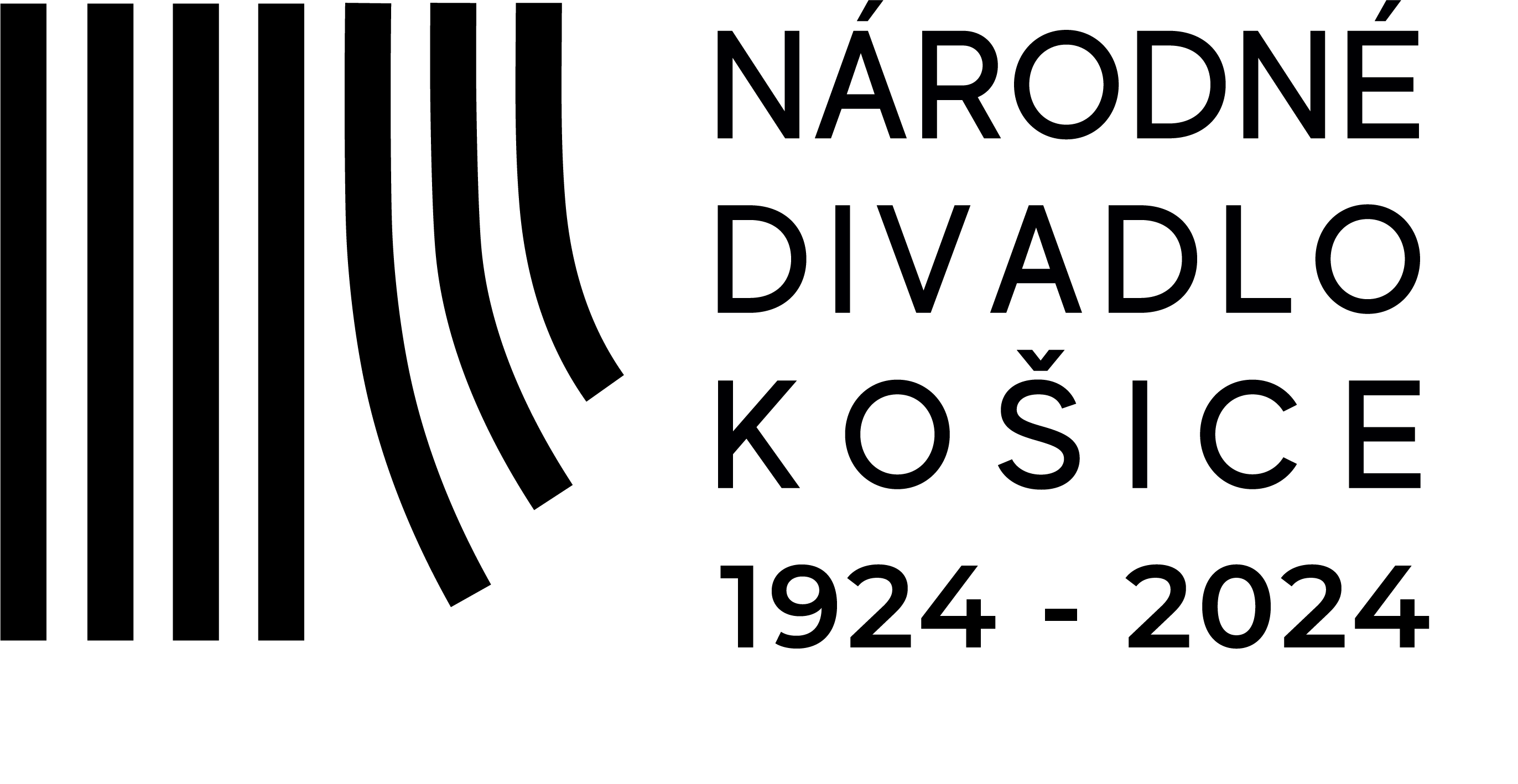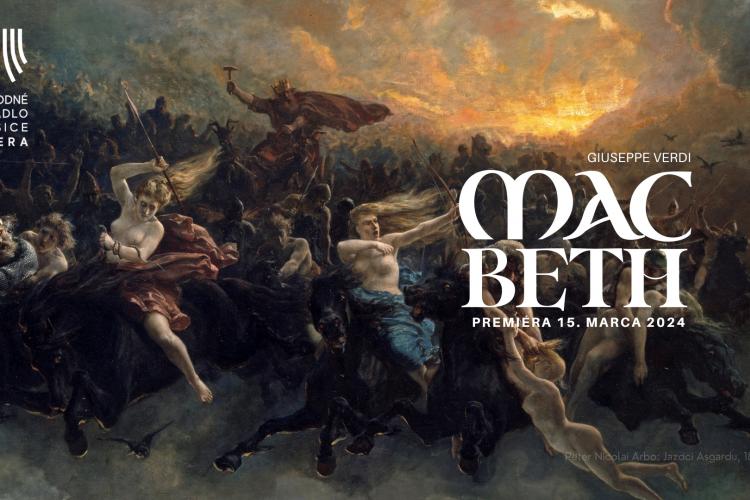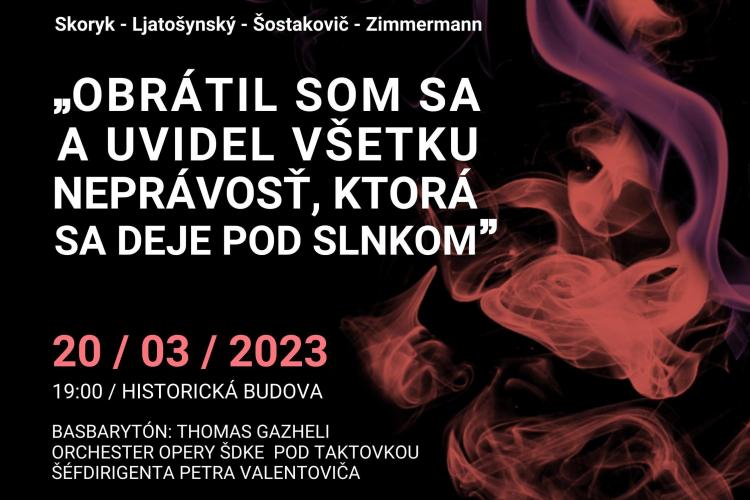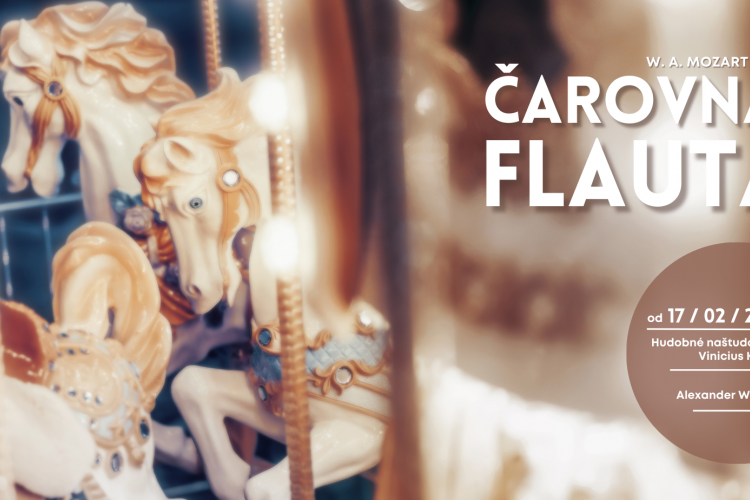On Saturday, November 20th, Kunsthalle presents a unique Symphony No. 3 by Henryk Górecki. Slávka Zámečníková, soloist of The Vienna State Opera will perform for the first time on stage of Košice Theatre accompanied by the Orchestra of the Opera Company ŠDKE that is conducted by the chief conductor Peter Valentovič.
You are preparing the premiere of Symphony No. 3 by Górecki in the State Theatre Košice. Is this your first encounter with this world known piece? And what appeals to you about it?
Exactly, this is my first introduction to this symphony and this composer as well. Having studied the work I’m sorry that I hadn’t met with it even sooner. The psalms, the symphony focuses on, really caught my attention. All the psalms deal with the sorrow of distance, either mother’s pain for a child or vice versa. The first sentence is Mary’s lament for Jesus dying on the cross. A well-known topic when Mary says she’d rather go through the pain herself. The part that caught my attention the most is Part II. The message was in fact scratched in the wall of one Gestapo prison cell in Zakopane during the WWII. The words are by an imprisoned eighteen-years old girl speaking to her mother. As if she apologised to her that she had been imprisoned and thus causes her pain and sorrow. The text reads: “Mother don’t cry, don’t", and she turns to Virgin Mary saying: “Virgin Mary in the highest, protect me.” When I read how the author composed that part, I was fascinated, just like the author, by one thing. Other prisoners left inscriptions on the wall as well. They wrote phrases like “Murderers”, “I’m innocent”, and similar cries of desperation. But this girl, almost a child, does not blame anyone, she only asks for forgiveness for the sorrow caused to her mother. An unusual heart-breaking cry. Part III deals with a mother’s sorrow for a son who is killed during invasions in Silesia in the WWII. It is taken from the lyrics of an old folk song. Overall idea of the piece touches a very sensitive topic.
The Symphony of Sorrowful Songs had an interesting fate. At first it was not accepted by music critics to become subsequently a hit of contemporary classic music. What makes it special?
I think mere fact that the composer takes courage to do topic that was so painful for people only a short time ago, that’s fascinating. The work was composed only around 30 years after the WWII. Other composers do much older topics or librettos, that are in a way popular among people, or they do topics that are very contemporary at that time. Overall idea of facing sorrowful facts, opening wounds, events that happened only a few decades ago and in a very emotionally direct manner as we can see it in this work. It is remarkable.
You have a lot of experience with interpretation of vocal–symphonic compositions. For you as a soloist, what was new or different when you were studying the piece?
Symphonies often contain vocal element in one part only or very little vocals in general. However, Górecki’s work focuses on vocals in the whole symphony, which is then reflected in overall form. And being confronted with the topic that is to a certain degree painful for everyone is quite new to me. It is, really, difficult to hold your emotions back when singing. Though I’m not mother yet, it is always very challenging for a woman to do the topic of loss of a child. It is not the first time I meet with this in a music composition and each time I must fight with myself not to cry. On the other hand, I’m really looking forward to that as with any other piece I’ll have the chance to bring to the audience my own perspective and tackle such emotional challenge. Moreover, the works rarely presented are a great opportunity for original interpretation.
Košice audience knows you from the concerts of The State Philharmonic, but this is your first performance in the State Theatre Košice. The idea to cooperate with you, how did it originate?
The idea came from the Opera Director - Roland Tóth who approached me and proposed to me that we cooperate on a work that was totally unknown to me by then. It was a pleasure to me to get dragged into these unknown waters. Having studied the work into detail I did not regret. It was a great choice. Moreover, I always like to get back to Košice. I did several concerts there with the philharmonic and the audience was always very warm and cordial. This time I’ll sing in the State Theatre for a change. And I’m looking forward to that.
Why should Košice audience and anyone else, come to see particularly Górecki’s Symphony?
I think that this topic is exactly what we need to remind ourselves these days. People deal with totally different things, and they think that present-day problems are the worst ever. It is common that people in distress forget about distress of others. But if we look at something that is much worser than that we experience today, our sorrow becomes more bearable. The work is a perfect means for kind of emotional catharsis or awakening. And beautiful music that is not so often presented, is similarly a balm for all the senses.






